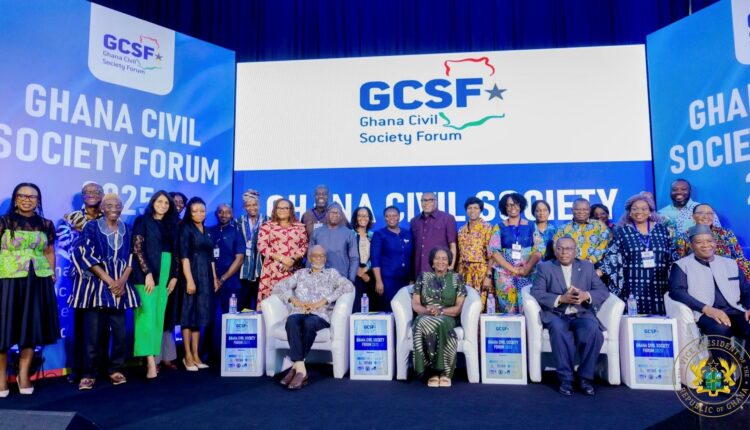Vice President of Ghana, Professor Naana Jane Opoku-Agyemang, has reaffirmed the government’s commitment to ensuring the passage of the long-awaited Civil Society (Non-Profit) Bill.
This is to regulate and strengthen the operations of Civil Society Organisations (CSOs) across the country.
Speaking at the Ghana Civil Society Forum held in Accra, the Vice President stressed that for civil society to thrive and play its crucial role in national development, there must be a strong legal framework to guide and protect its work.
“The government is fully committed to creating an enabling environment where CSOs can contribute meaningfully to our democratic and development goals,” she stated.
In a separate Facebook post after the event, the Vice President indicated that, “I served as the Guest of Honour at the 3rd edition of the Ghana Civil Society Forum, which was held under the theme “Reimagining Development Financing and Civic Action: Challenges, Opportunities, and the Way Forward.” The gathering was an opportunity to reflect on how we can build a more resilient and just development model for our country.
“In my address, I acknowledged the real challenges posed by declining support from traditional funders, limited fiscal space, and increasing constraints on civic engagement. We must now reimagine our approach by moving from dependency to ownership.
In addition, she wrote, “I shared some of the efforts we are undertaking as a government, including reforms to broaden our tax base and improve public financial management, and the introduction of policy changes through the 2025 budget. We are also exploring innovative financing models.
“However, I stressed that development is not only about money, but also about agency. Civic actors must remain at the heart of our national progress. Their role in monitoring, advocacy, and delivering community-based solutions is indispensable. I highlighted the immense potential in our youthful population as well as the need to harness the promise of digital transformation and the AfCFTA.
“I concluded by encouraging all stakeholders to embrace a new social contract based on shared accountability, co-investment, and decentralized power. This forum was a reminder that inclusive development is possible when government, civil society, and communities work together to create lasting, citizen-focused change.”
The two-day event, organised by the Ghana Anti-Corruption Coalition (GACC), brought together civil society leaders, policymakers, and development partners to deliberate on key challenges facing the sector and explore pathways for stronger partnerships in national development.


Comments are closed.